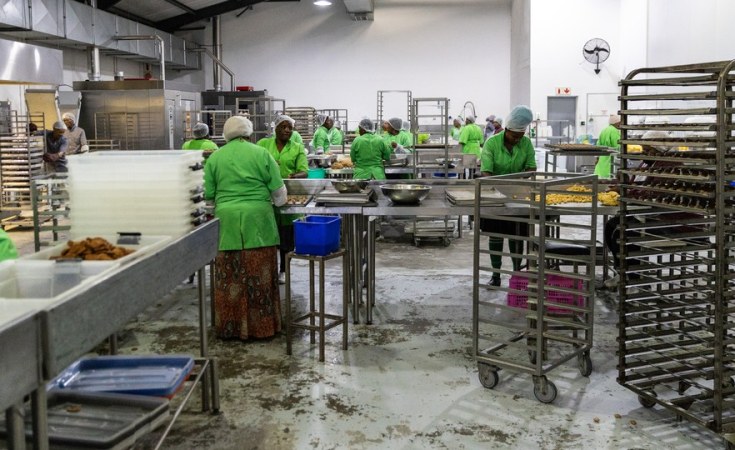From just two staff in 2005 to almost 80 women now, the hand baked cookie business has risen from humble beginnings
Over 82,000 delicious, baked goods - rusks, brownies, chocolate chip and ginger cookies - are made daily by the women of Khayelitsha Cookies, and it is all done by hand.
The company started in 2005 with two women and American entrepreneur Alicia Polak, who taught them "American style" cookies.
What started in a community centre has since grown to a staff of 87, of which nine are male, with a large recipe selection.
It's not just tasty cookies, it's about empowerment, says Adri Williams, managing director and co-owner of Khayelitsha Cookies. "Ninety percent of the women in this facility you'll find cannot speak English, cannot read, cannot write and have no formal schooling," she said.
To tackle this, Williams says that they teach women using their first language, pictures and on-the-job training. Jobs include hand baking, packing and quality control.
Williams said that they also help the women to open their own bank accounts and how to budget. Khayelitsha Cookies recently introduced an incentive whereby workers can go home earlier once they finish their target for the day and still get paid for the full day. She says that this has had a great social impact.
"We're seeing that the kids don't get sent to grandma and grandpa in the Eastern Cape anymore, because moms can get home by the time the kids come back from school."

When Khayelitsha Cookies first started in 2005, it had three domestic ovens, two dough mixers and two staff baking. The women would pack the cookies and walk around the township with baskets, selling them to whoever was interested.
Since then, the company has grown and has six industrial mixers and six ovens. Most recipes are "family kept secrets", Williams says. "So not something you can find on Google."
But Williams says it hasn't been easy. "We have to compete head on with machine-baked cookies with our competitors in the industry."
She says that it takes them 40 days to bake what a machine can bake in one day, and that they have to bake between 82,000 and 108,000 daily.
"If we bake less than that per day, or sell less than that per day, it goes to direct losses."
She says that even though machines would be faster, they will never replace the women with machines.
Their clients are mostly hotels, airlines, stores and the hospitality industry. Williams said that one client not ordering their usual monthly stock could put them in arrears. "The sad reality for us is that if we don't get consistent orders, it leads to losses".
"It's very unpredictable," she says.
Williams says that her vision is to one day employ 1,000 women and that Khayelitsha cookies is the world's most loved cookie.


